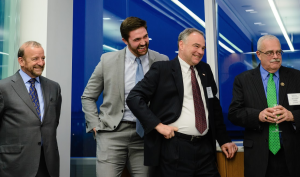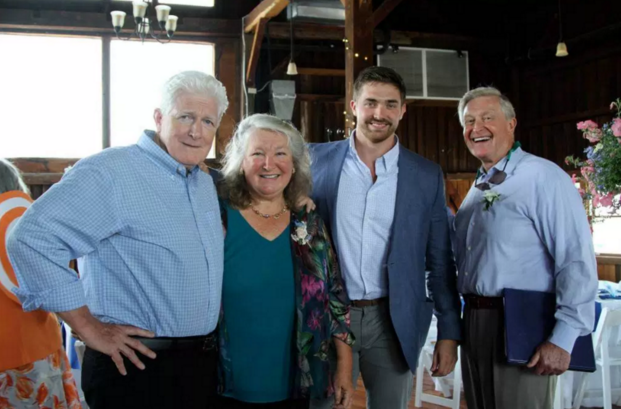 It’s easy to get so caught up in the day-to-day operations of your business that you and your team begin to lose sight of what defines success. An unbiased perspective from an experienced team is sometimes all that it takes to get back on the right track.
It’s easy to get so caught up in the day-to-day operations of your business that you and your team begin to lose sight of what defines success. An unbiased perspective from an experienced team is sometimes all that it takes to get back on the right track.
Moran Strategy Group was founded to provide strategic advice, public policy expertise, and issue management services using the same principles of integrity and hard work that Congressman James P. Moran displayed throughout his tenure as a Congressman. He has since passed off the management of day-to-day operations to Patrick Moran to continue carrying those same principals forward.
Put simply, strategic planning is to a business what a map is to a road rally driver. It is a tool that defines the routes that when taken will lead to the most likely probability of getting from where the business is to where the owners or stakeholders want it to go. And like a road rally, strategic plans meet detours and obstacles that call for adapting and adjusting as the plan is implemented.
The first step in the strategic planning process is to address the questions “Where are we?” and “What do we have to work with?” Examination of recent history and changing contexts (both internal and external) of the state, organization, program, or sub-program allows participants to assess current positions. Answering the question of what we have to work with involves consideration of strengths and weaknesses and determination of how to capitalize on strengths.
For instance, in a recent January-February 2016 issue of Harvard Business Review (HBR) magazine, an article titled, The Biology of Corporate Survival, by Martin Reeves, Simon Levin, and Daichi Ueda, finds the challenge for companies is that they have ever shorter life spans because they are failing to adapt to the increasing complexity of the business environment. Too often they pursue approaches to strategy that emphasize short-term performance over long-term robustness. Their research offers six principles to help companies pursue longevity and sustainability: 1. maintain heterogeneity of people, 2. ideas and endeavors, 3. sustain a modular structure, 4. preserve redundancy among components, 5. expect surprise, but reduce uncertainty, 6. create feedback loops and adaptive mechanisms, and 7. foster trust and reciprocity in their business ecosystems.
Moran Strategy Group offers these four main services:
- Start-Up Advisory Services: Starting your small business is no easy task. Financial services, human resources, project management are all areas that require specialized expertise to ensure that they are done right the first time.
- Procurement Support: Washington is not an easy place to navigate. At Moran Strategy Group, we lend our experience in federal government procurement and policy-making to help our clients navigate the obstacle-ridden legislative and regulatory trenches. We support the entire business development lifecycle, whether that be opportunity research, capture, or proposal development. Throughout our efforts, we keep one goal in mind: to improve your win probability (pWin).
Often, the difference between being awarded and not being awarded are clear lines of communication to deliver your message. But without strong relationships, these communications are too often interpreted as “selling” and fall on deaf ears. At Moran Strategy Group, we break through this negative stigma to effectively convey your value proposition.
- Performance Management: In today’s business environment, sustained success is not only about working hard. It also requires that your business takes the proactive steps to cultivate a culture of ethics, inclusion, innovation, and professional development. Our team brings human resource and process improvement expertise to ensure that your team is as strong as it can be today and tomorrow.
- Leadership Consulting: Our team lends its experience in serving as elected officials, board directors, corporate executives, campaign strategists, non-profit leaders and small business founders. We appreciate the challenges our clients face daily and provide an objective perspective to advise clients in strategic planning, communication strategy, project management, process improvement, and political engagement.
The benefit of the discipline that develops from the process of strategic planning, leads to improved communication. It facilitates effective decision-making, better selection of tactical options and leads to a higher probability of achieving the owners’ or stakeholders’ goals and objectives.
Moran Strategy Group is about more than just providing advice and access; it is about lending wisdom and a deep commitment to supporting you in achieving your business goals by providing a perspective that you will not find anywhere else.
Sources:
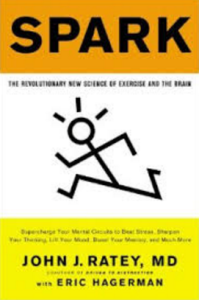
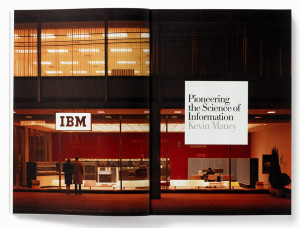 Instead of a typical commemorative publication, IBM asked journalists, Kevin Maney, Steve Hamm and Jeffrey M. O’Brien to research, explore and uncover IBM’s 100-year-history and to “tell its story”, so to speak. Kevin, Steve and Jeffrey share a wealth of knowledge about technology, business and history. In this book, the authors analyze the past 100-years at IBM. They focus on three aspects of how the world has changed and explore IBM’s role in that change. In the book, each author offers a distinct perspective on what it all means.
Instead of a typical commemorative publication, IBM asked journalists, Kevin Maney, Steve Hamm and Jeffrey M. O’Brien to research, explore and uncover IBM’s 100-year-history and to “tell its story”, so to speak. Kevin, Steve and Jeffrey share a wealth of knowledge about technology, business and history. In this book, the authors analyze the past 100-years at IBM. They focus on three aspects of how the world has changed and explore IBM’s role in that change. In the book, each author offers a distinct perspective on what it all means.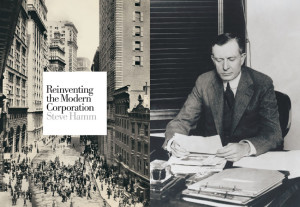 Kevin Maney writes Part 1: Pioneering the Science of Information. His focus is multidimensional, writing about the history of computation, IBM’s role in shaping it and how its foundational components are advancing and recombining today. Similarly, Steve Hamm’s look at IBM’s growth into a new kind of business institution offers intriguing new perspectives on some well-worn truisms in Part 2: Reinventing the Modern Corporation. Finally, Jeffrey O’Brien, author of Part 3: Making the World Work Better, reveals compelling examples of what is required to accomplish the hard work of progress in an increasingly complex and interconnected world.
Kevin Maney writes Part 1: Pioneering the Science of Information. His focus is multidimensional, writing about the history of computation, IBM’s role in shaping it and how its foundational components are advancing and recombining today. Similarly, Steve Hamm’s look at IBM’s growth into a new kind of business institution offers intriguing new perspectives on some well-worn truisms in Part 2: Reinventing the Modern Corporation. Finally, Jeffrey O’Brien, author of Part 3: Making the World Work Better, reveals compelling examples of what is required to accomplish the hard work of progress in an increasingly complex and interconnected world.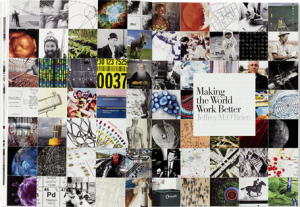 Today, Information Technology (IT) has literally changed the way we think. Many interconnected individuals can have access to the same wealth of information at nearly the same time and work on it together with the help of machines. Additionally, the gradual move from philanthropy to social business has brought many changes. For example, the authors write, “The urge to make a difference in another person’s life is an impulse as old as humanity itself and is the foundation for charity. But now, by harnessing both the power of capitalism and the will to do good, companies, governments and nonprofits have better opportunities to make progress on seemingly intractable problems such as poverty, disease and environmental degradation.”
Today, Information Technology (IT) has literally changed the way we think. Many interconnected individuals can have access to the same wealth of information at nearly the same time and work on it together with the help of machines. Additionally, the gradual move from philanthropy to social business has brought many changes. For example, the authors write, “The urge to make a difference in another person’s life is an impulse as old as humanity itself and is the foundation for charity. But now, by harnessing both the power of capitalism and the will to do good, companies, governments and nonprofits have better opportunities to make progress on seemingly intractable problems such as poverty, disease and environmental degradation.”


